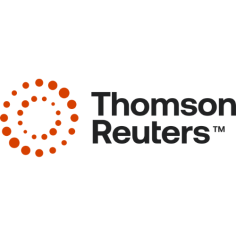National center for state courts, Thomson Reuters institute form strategic AI partnership
Initiative to expand education of judiciary, legal community on evolving AI technology and solutions
The National Center for State Courts (NCSC) and the Thomson Reuters Institute, part of global content and technology company Thomson Reuters, today announced the launch of a strategic artificial intelligence (AI) partnership called the Thomson Reuters Institute/National Center for State Courts AI Policy Consortium for Law and Courts. This joint initiative is designed to inform and educate the judiciary about the opportunities and challenges of evolving AI and generative AI solutions thereby enabling judges and legal and court professionals to make informed decisions about adoption and use.
This initiative will have a significant positive impact on the practice of law; increase access to justice for underserved communities; and provide an opportunity for U.S. courts to become the global, trusted leader on responsible judicial AI adoption by developing an examination of the opportunities and challenges that AI and generative AI present, a detailed education on AI and generative AI, and an analysis of AI and generative AI’s impact to federal/state/international courts.
“Thomson Reuters and the Thomson Reuters Institute are committed to supporting the evolution of the U.S. justice system. By working with the National Center for State Courts, we can develop and promote responsible practices employing technology, including GenAI, that prioritize fairness, transparency, and accountability, ultimately leading to a more efficient, effective, and equitable system for all,” said Mike Abbott, head of the Thomson Reuters Institute.
“The TRI/NCSC AI Policy Consortium will provide timely information and education to judges and court staff in the states, and internationally,” said Mary McQueen, president of the National Center for State Courts. “The courts’ appropriate use of artificial intelligence is both a challenge and opportunity for courts to expand access to justice and protect fair and impartial courts, and we believe that by working together, NCSC and TRI can lead the way during this era of innovation. This initiative is a key part of NCSC’s broader court innovation agenda.”
The partnership developed a policy consortium composed of forward-leaning legal thinkers and court leaders to address these vital goals, as well as discuss policy developments and responses crucial to the future of the justice ecosystem. The policy consortium’s work will consist of ongoing study and evaluation of AI governance, education, and AI solutions and focus on three key areas:
- The future impact of generative AI on the practice of law and the courts,
- How AI and generative AI can be appropriately harnessed to increase access to justice, and
- What policy responses should be explored and recommended to protect the rule of law from any potential ill-effects of generative AI.
A key component of the policy consortium’s efforts will be offering educational courses, taught by experts, for judges to learn about AI, AI’s impact on the judicial and legal workforce, the ethical issues raised by using AI, how using AI can enhance court efficiency, and more.
The policy consortium’s work will be supported and informed by the efforts of four AI policy workstreams, composed of renowned and respected academics, legal scholars, and technologists. The workstreams will focus on the following matters:
- AI governance and ethics,
- Workforce readiness for AI adoption,
- Rules and practices pertaining to AI, and
- AI’s impact on access to justice.
The following are the initial consortium members:
Co-Chairs
- Mike Abbott, head of the Thomson Reuters Institute
- Mary McQueen, president of the National Center for State Courts
Members (in alphabetical order)
- Chief Judge Anna Blackburne-Rigsby, District of Columbia Court of Appeals
- Judge J. Michelle Childs, United States Court of Appeals, District of Columbia Circuit
- James C. Duff, executive director of the Supreme Court Historical Society
- Dr. Gary Marchant, regent professor of law, and director of the Center for Law, Science and Innovation, Sandra Day O’Connor School of Law, Arizona State University
- Bridget Mary McCormack, president and CEO, American Arbitration Association-International Centre for Dispute Resolution
- Jami McKeon, chair, Morgan Lewis
- Andrew Perlman, dean and professor of law, Suffolk University
- Justice Elizabeth “Beth” Walker, West Virginia Supreme Court of Appeals



